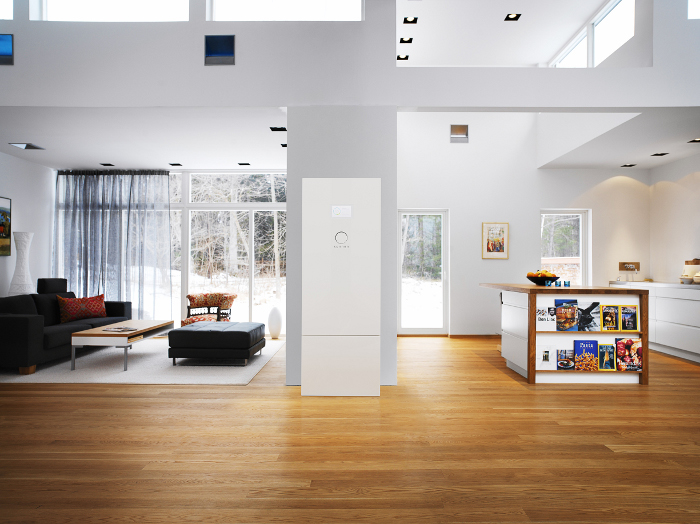Original article: RenewEconomy.
The move, if upheld, is likely to send shockwaves through the industry, with thousands of Australian households, including prime minister Malcolm Turnbull, already installing lithium ion battery storage devices and millions more predicted to do so in coming years.
Standards Australia, a voluntary body that draws on expertise from the industries involved and key stakeholders, is expected to release the draft guidelines in the next week or so. But news of its proposals has already leaked, causing concern that the decision could bring the industry to a halt.
It is feared that the ruling, if upheld, could cause damage to the lithium ion storage market – expected to be worth billions of dollars and expected to play a critical role in the evolution of Australia’s energy market.
Most of the 1.6 million Australian households with rooftop solar already installed say they intend to install battery storage.
It is believed Standard Australia will advise lithium ion battery storage should only be installed in free standing “kiosks” – or effectively a “bunker” as one source described it – which would likely add thousands of dollars to the cost of installation.
This will affect not just individual installations, including those looking to go off grid, but also “mass” deployment such as AGL Energy’s “virtual power plant” in South Australia, which it plans to replicate “across the grid”, as well as numerous trials being conducted by networks across Australia, and various “power sharing” proposals across the country.
It also raises questions about whether people with electric vehicles, powered by lithium-ion storage, would also be banned from households garages.
Extraordinarily, there are currently no standards for lithium ion battery storage in Australia, as we reported back in March last year, but deliberations began in June. However, both the Clean Energy Council, and the Energy Storage Council have issued their own guidelines, which do not include a ban.
The proposal is being seen as going from one extreme to another, and well beyond where are other jurisdiction such as Germany or California, the other big household battery storage markets, have gone.
Australia is considered to be the world’s test market for battery storage, thanks to its extraordinary high grid costs, mostly due to the pricing of the network, and its high penetration of rooftop solar.
Forecasts for battery storage uptake include 2 million within a few years (Morgan Stanley), to 6 million by 2030 (Bloomberg New Energy Finance and CSIRO/ENA predicted that battery storage capacity would outstrip rooftop solar by 2025. Industry analyst Sunwiz says 70 per cent of solar households are looking to install battery storage of some sort.
Two of the biggest players in the market – Tesla and LG Chem – both use lithium-ion, as do numerous other products such as Sonnenbatterie, Sony, Enphase, GCL, BYD, Panasonic and Samsung.
Other products, such as Australia’s Redflow zinc bromine flow batterie, Australia’s Ecoult (advanced lead battery) and the US-based Aquion (water) do not use lithium ion.
Standards Australia is believed to have taken a conservative view of lithium ion based on recommendations from fire authorities, who took the path of least risk. This follows the ban of some lithium-ion phone devices on aircraft, such as Samsung.
But others say that lithium-ion battery storage devices have long been installed in homes, particularly Germany. This proposal goes further than those put out by International Electrotechnical Commission and UL – formerly known as Underwriters Lab.
John Grimes, the head of the Australian Solar Council, said he would not comment on the reports on the Standards Australia draft.
But he noted that there are standards in the US and Japan that did not ban battery storage devices in homes. In Germany, where more than 30,000 devices were installed last year, lithium ion battery storage was banned only in bedrooms.
“There needs to be clear evidence tabled that these installations represent an unacceptable risk,” he told RenewEconomy. “It has to be evidence based.”
The committee is understood to have included representatives from the solar and storage industries (both lithium-ion and other technologies), networks, consumer groups, fire authorities and independent consultants.
Article reproduced with permission by RenewEconomy.
This content is protected by copyright and may not be reused. If you want to cooperate with us and would like to reuse some of our content, please contact: editors@pv-magazine.com.



1 comment
By submitting this form you agree to pv magazine using your data for the purposes of publishing your comment.
Your personal data will only be disclosed or otherwise transmitted to third parties for the purposes of spam filtering or if this is necessary for technical maintenance of the website. Any other transfer to third parties will not take place unless this is justified on the basis of applicable data protection regulations or if pv magazine is legally obliged to do so.
You may revoke this consent at any time with effect for the future, in which case your personal data will be deleted immediately. Otherwise, your data will be deleted if pv magazine has processed your request or the purpose of data storage is fulfilled.
Further information on data privacy can be found in our Data Protection Policy.